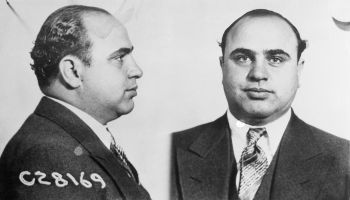DES MOINES, Iowa — Iowa’s state government employment policies have not discriminated against black employees and job applicants, a judge ruled Tuesday in a case closely watched by civil rights activists.
SEE ALSO: Google Seeking Full-Time Doodler
District Judge Robert Blink issued the ruling after overseeing a trial last fall in the class action lawsuit affecting up to 6,000 applicants who were passed over for jobs and promotions dating back to 2003. He rejected attempts to require Iowa to pay tens of millions in lost wages or change its hiring policies to track and eliminate disparities.
LIKE NewsOne On Facebook To Stay Up On Black News Worldwide!
Experts have called the case the largest class-action lawsuit of its kind against a state government’s civil service system, and it tested a legal theory that social science and statistics alone can prove widespread discrimination.
Blink resoundingly rejected what he called an unprecedented claim, saying the evidence did not support the idea that subtle biases were allowed to creep into the hiring process and discriminate against blacks.
Plaintiffs’ attorney Thomas Newkirk said the case will be appealed within 30 days. He said Blink’s earlier decision to allow the case to proceed to trial provided a small step forward toward understanding how racial bias affects minorities, but that his side had been hoping for a bigger step.
In his 56-page ruling, Blink said he was aware of the heavy stakes in the case, including whether blacks were being treated fairly by the state’s largest employer and the potential for millions of dollars in consequences for taxpayers and plaintiffs.
But he said lawyers for the plaintiffs, who urged him to consider the state’s progressive history on civil rights, were asking him to “circumvent clear and timely” U.S. Supreme Court precedent, which would not allow the lawsuit. He said their case failed to challenge a particular employment practice that was discriminatory, an element required under state and federal civil rights laws.
He said the data showed wide discrepancies in the record of hiring blacks at different agencies. While some departments may have disparities, he said the data showed that blacks had an advantage compared to whites in others and that the number of black managers had increased over time compared to whites.
Blacks also fare better when applying for public employment in Iowa than the private sector, he said, which could prove that the state’s merit-based system was working to reduce discrimination.
Blink also downplayed the importance of testimony from University of Washington psychology professor Anthony Greenwald, who developed the Implicit Association Test to gauge racial stereotypes. Greenwald testified about research that shows an inherent preference for whites over blacks in up to 80 percent of test-takers.
Blink said that Greenwald offered no data specific to Iowa about racial bias and could not estimate what percentage of hiring decisions were the result of stereotyped thinking about blacks.
Unlike many other discrimination lawsuits, the plaintiffs did not argue that they faced overt racism or a discriminatory hiring test in Iowa, which is 91 percent white. Instead, their lawyers claimed implicit bias in which managers throughout state government subconsciously favored whites and hurt blacks through their decisions about who got interviewed, hired and promoted. They said state officials failed to follow their own hiring rules meant to prevent such bias.
The plaintiffs called experts during the trial who testified that blacks are hired at lower rates in Iowa than similarly-situated whites and receive less favorable evaluations and lower starting salaries. They also highlighted a consultant’s report in 2007 that warned of disparities between whites and minorities, and argued that steps meant to improve diversity of the state workforce were not effective.
Blacks represented 2.9 percent of the state’s population in 2010 and 2.4 percent of the state workforce despite applying for state jobs more often, statistics show.
Lawyers working under Attorney General Tom Miller, a Democrat, had asked Blink to dismiss the case. They called the scope of the lawsuit – it questioned every hiring and promotion decision made at 37 state agencies, involving 20,000 jobs and 500,000 applications – unprecedented. A spokesman for the attorney general’s office had no immediate comment.
SEE ALSO:
Man Flees After Woman Demands Too Much Sex
73-Year-Old Sold Pot And Had Illegal Guns In Oklahoma, Cops Say
- Tunisia: Entertainment, Food, Languages, Places To Visit + More
- Morocco: Entertainment, Food, Languages, Places To Visit + More
- Algeria: Entertainment, Food, Languages, Places To Visit + More
- Egypt: Entertainment, Food, Languages, Places To Visit + More
- South Sudan: Entertainment, Food, Languages, Places To Visit + More
Iowa’s Government Hiring Policies Not Racist, Judge Rules was originally published on newsone.com















